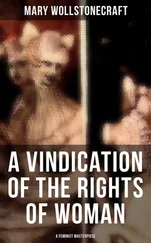Andrea Dworkin - The Political Memoir of a Feminist Militant
Здесь есть возможность читать онлайн «Andrea Dworkin - The Political Memoir of a Feminist Militant» весь текст электронной книги совершенно бесплатно (целиком полную версию без сокращений). В некоторых случаях можно слушать аудио, скачать через торрент в формате fb2 и присутствует краткое содержание. Жанр: Публицистика, на английском языке. Описание произведения, (предисловие) а так же отзывы посетителей доступны на портале библиотеки ЛибКат.
- Название:The Political Memoir of a Feminist Militant
- Автор:
- Жанр:
- Год:неизвестен
- ISBN:нет данных
- Рейтинг книги:4 / 5. Голосов: 1
-
Избранное:Добавить в избранное
- Отзывы:
-
Ваша оценка:
- 80
- 1
- 2
- 3
- 4
- 5
The Political Memoir of a Feminist Militant: краткое содержание, описание и аннотация
Предлагаем к чтению аннотацию, описание, краткое содержание или предисловие (зависит от того, что написал сам автор книги «The Political Memoir of a Feminist Militant»). Если вы не нашли необходимую информацию о книге — напишите в комментариях, мы постараемся отыскать её.
The Political Memoir of a Feminist Militant — читать онлайн бесплатно полную книгу (весь текст) целиком
Ниже представлен текст книги, разбитый по страницам. Система сохранения места последней прочитанной страницы, позволяет с удобством читать онлайн бесплатно книгу «The Political Memoir of a Feminist Militant», без необходимости каждый раз заново искать на чём Вы остановились. Поставьте закладку, и сможете в любой момент перейти на страницу, на которой закончили чтение.
Интервал:
Закладка:
the claims that would be made for it later by feminists: the
bull was the sacred animal of Goddess religions and cults, the
symbol of the Great Goddess. One of the great icons of
modern feminism originates in Crete - the labyris, the double
ax. Both the bull and the labyris signified the Goddess religion,
and Knossos was a holy site. From 3, 700 years before Christ
to 2, 000 years before Christ, Crete was the zenith of civilization, a Goddess-worshiping civilization.
Originally I saw it from the opposite side of the road. A
friend and I went to have a picnic in the country north of
Heraklion; we had wine and a Greek soft cheese that I particularly favored; we were in love and trouble and so talked in our own pidgin tongue made up of Greek, English, and French.
I found myself going out there alone and finding refuge in the
intriguing building across the road, Knossos. I found the
72


Knossos
throne room especially lovely and intimate. I would take a
book, sit on the throne, and read, every now and then thinking about what it must have been like to live in this small and intimate room. The rest of the palace that had been restored
was closed, and as soon as I heard the first busload of tourists
sometime in late April I never went back. But for a while it
was mine. I felt at home there, something I rarely feel anywhere. Once I was inside, it was as familiar as my own skin. I loved the stone from which everything, including the throne,
was made. I loved the shape of the room and the throne itself.
I loved the colors, as I remember them now mostly red and
blue but very pure, the true colors painted on stone. I don’t
think it is possible to go back to a place that has such a grip
on one’s heart; or I can’t. When I die, though, I’m going back,
as ash, dust unto dust - not to the stone walls or throne of
Knossos but to a high hill overlooking Heraklion. I belong to
the place even if the place does not belong to me.
73


Kazantzakis
In the early morning I would walk from my balcony near the
water to the market. I’d buy olives. There had to be dozens
of different kinds. Of al the food for sale, olives were the
cheapest, and I’d buy the cheapest of those - about an eighth
of an ounce - and then I’d find a cafe and order a cof ee. I’d
keep fil ing the cup with milk, each time changing the ratio of
cof ee to milk. I’d have the waiter bring more and more milk.
As long as there was stil some cof ee in the cup I couldn’t be
refused. This was a rule I made up in my mind, but it seemed
to hold true. Early on I stole a salt shaker so that I could clean
my teeth. Salt is abrasive, but it works.
I had read about the square where I took my coffee in
Nikos Kazantzakis’s novel Freedom or Death, a book I carried
with me almost everywhere once I discovered it (and I stil
have that paperback copy, brown and brittle). A novelist who
captures the soul of a country or a people writes fiction and
history and mythology, and Freedom or Death is such a work.
It is the story of the 1889 revolt of the Cretans against the
Turks. It is epic and at the same time it is the story of
Heraklion, Crete’s largest city and where I was living. Inside
74


Kazantzakis
the epic there are love stories, stories of fraternal affection and
conflict, sickening details of war and occupation. In the square
- the square where I was sitting - the Turks would hang rebels,
the solitary body often more terrifying than any baker’s
dozen. Only a writer can show that precise thing, bring the
disfigured humanity of the dead individual into one’s own
viscera. One forgets the eloquence of the single person who
wanted freedom and got death. I could always see the body
hanging.
In those days political women did a kind of inner translating so that al the heroes, almost always men except for the occasional valiant female prostitute, were persons, ungendered, and one could aspire to be such a person. The point for the writer and other readers might well be masculinity itself,
but the political female read in a different pitch - the body
shaking the trees with its weight, obstructing both wind and
light, would be more lyrical, with the timbre in Bil ie Holiday’s
voice. Freedom or Death set the terms for fighting oppression;
later, feminism brought those terms to a new maturity with
the idea that one had to be willing to die for freedom, yes, but
also willing to live for it. Each day over my prolonged cup of
coffee I would watch the body hanging in the square and
think about it, why the body was displayed in torment as if
the torture, the killing continued after death. I would feel the
fear it created in those who saw it. I would feel the necessity
of another incursion against the oppressor - to show that he
75


Heartbreak
had not won, nor had he created a paralyzing fear, nor had he
stopped one from risking one’s life for freedom.
I haven’t read Kazantzakis since I lived on Crete in 1965. I
have never read Zorba the Greek , his most famous novel
because of the movie made from the book, a movie I saw
maybe a decade or two later on television. Freedom or death
was how I felt about segregation back home, the Vietnam
War, stopping the bomb, writing, making love, going where
I wanted when I wanted. Freedom or death was how I felt
about the Nazis, the fascists, the tyrants, the sadists, the cold
kil ers. Freedom or death was how I felt about the world
created by the compromisers, the mediocrities, the apathetic.
Freedom or death encapsulated my philosophy. So I wrote a
series of poems cal ed (Vietnam) Variations ; poems and prose
poems I collected in a book printed on Crete called Child; a
novel in a style resembling magical realism called Notes on
Burning Boyfriend ; and poems and dialogues I later handprinted
using movable type in a book cal ed Morning Hair . The burning boyfriend was Norman Morrison, the pacifist who had set himself on fire to protest the Vietnam War.
Читать дальшеИнтервал:
Закладка:
Похожие книги на «The Political Memoir of a Feminist Militant»
Представляем Вашему вниманию похожие книги на «The Political Memoir of a Feminist Militant» списком для выбора. Мы отобрали схожую по названию и смыслу литературу в надежде предоставить читателям больше вариантов отыскать новые, интересные, ещё непрочитанные произведения.
Обсуждение, отзывы о книге «The Political Memoir of a Feminist Militant» и просто собственные мнения читателей. Оставьте ваши комментарии, напишите, что Вы думаете о произведении, его смысле или главных героях. Укажите что конкретно понравилось, а что нет, и почему Вы так считаете.












